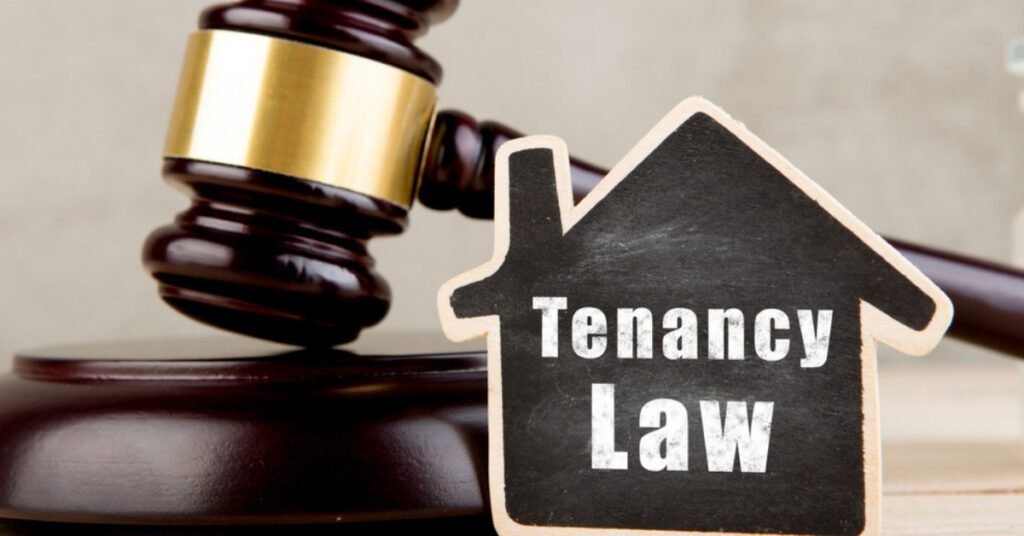Reforms in tenancy laws UAE are gaining attention as the government moves to stabilize rental prices, protect tenants, and create a balanced real estate market. With rising demand for housing and fluctuating rental costs, these reforms aim to provide fairness for both tenants and landlords, ensuring long-term stability in the property sector.
Understanding the Need for Reforms in Tenancy Laws
The UAE property market has experienced rapid growth over the past decade. While this growth has created investment opportunities, it has also led to challenges such as:
- Sudden increases in rent prices
- Disputes between landlords and tenants
- Lack of transparency in rental agreements
- Uneven regulatory enforcement across emirates
To address these challenges, the government has introduced reforms in tenancy laws to ensure rental stability, protect tenants from unfair practices, and maintain a healthy real estate environment.

Key Features of the Tenancy Law Reforms
The latest tenancy law reforms in the UAE focus on several key areas:
1. Rent Stabilization Measures
One of the primary objectives is to control excessive rent increases. Reforms include:

- Caps on annual rent hikes based on market trends
- Rent increase calculations tied to official indices
- Restrictions on arbitrary rent adjustments by landlords
These measures aim to make housing costs predictable and affordable for residents while maintaining fair returns for landlords.
2. Strengthened Tenant Rights
Tenants now enjoy stronger protections under the new laws, including:
- Clear guidelines on eviction procedures
- Extended notice periods for rental termination
- Legal avenues to dispute unfair rent hikes or lease violations
By empowering tenants, the reforms create a balanced relationship between landlords and residents.
3. Transparent Rental Agreements
To enhance clarity and reduce disputes, tenancy contracts are now required to be more detailed and transparent. Reforms include:
- Standardized contract templates approved by authorities
- Mandatory disclosure of rental terms, maintenance obligations, and fees
- Digital registration of all tenancy contracts with local authorities
These steps ensure both parties are aware of their rights and responsibilities.
4. Unified Regulations Across Emirates
Historically, tenancy laws varied between emirates, creating inconsistencies. The reforms promote:
- Alignment of rules and procedures across all emirates
- Centralized monitoring of rental data to identify trends
- Consistent enforcement of laws to prevent unfair practices
Unified regulations enhance confidence in the property market for residents, investors, and developers.
Benefits for Tenants and Landlords
The tenancy law reforms offer several advantages for all stakeholders:
- Tenants: Greater protection, predictability, and clarity in rental agreements
- Landlords: Secure returns through regulated rent increases and reduced disputes
- Investors: Increased confidence in a stable real estate market
- Government: Strengthened regulatory oversight and improved market transparency
These reforms contribute to a more equitable and sustainable housing ecosystem in the UAE.
Implementation and Regulatory Oversight
Authorities across the UAE are responsible for ensuring the effective implementation of tenancy law reforms:
1. Rental Dispute Centers
Each emirate has established rental dispute centers to handle conflicts between landlords and tenants efficiently. Functions include:
- Mediation and arbitration of disputes
- Legal support for contract violations
- Enforcement of court rulings
These centers reduce the burden on courts and provide quick resolutions.
2. Digital Platforms
The government has introduced digital platforms to register and monitor tenancy contracts, offering benefits such as:
- Easy access to contract information for tenants and landlords
- Real-time updates on rent changes and notices
- Automated compliance checks with legal requirements
Digitalization ensures transparency and accountability in the rental market.
3. Public Awareness Campaigns
Authorities are actively educating residents and landlords about their rights and obligations under the new tenancy laws. Initiatives include:
- Online tutorials and guides
- Workshops and seminars for landlords and tenants
- Helplines for legal advice and dispute resolution
Awareness programs encourage compliance and minimize conflicts.
Case Studies: Impact on the Real Estate Market
Dubai
Dubai’s rental market has experienced steady growth, and the reforms are expected to:
- Prevent sudden rent spikes in high-demand areas
- Encourage long-term leases for residential properties
- Maintain a healthy balance between tenant needs and investor returns
Abu Dhabi
In Abu Dhabi, tenancy law reforms help:
- Protect low- to middle-income residents from excessive rent hikes
- Improve transparency in contract terms and rental practices
- Promote sustainable growth in the housing sector
Sharjah and Other Emirates
Other emirates are implementing similar reforms, ensuring uniform protection for residents while fostering investor confidence. These steps contribute to a cohesive national housing strategy.
Challenges and Solutions
Despite the benefits, some challenges may arise:
- Market Resistance: Landlords may resist rent caps, requiring enforcement through legal and digital mechanisms
- Awareness Gaps: Some tenants may be unaware of their rights; ongoing public education is critical
- Monitoring Compliance: Effective oversight requires investment in digital tools and trained personnel
The government continues to address these challenges through regulation, technology, and stakeholder engagement.

Future Outlook
The reforms in tenancy laws UAE mark a significant step toward a stable and transparent housing market. Future developments may include:
- Real-time rental index tracking for better market insights
- Expanded digital dispute resolution platforms
- Enhanced support for affordable housing initiatives
- Greater integration of smart city technologies in property management
These initiatives are expected to sustain rental stability, attract investment, and ensure housing affordability across all emirates.
Conclusion
Reforms in tenancy laws UAE are a crucial measure to stabilize rents, protect tenants, and ensure a fair and transparent real estate market. By introducing rent caps, strengthening tenant rights, standardizing contracts, and implementing unified regulations, the UAE government is creating a balanced environment for residents and investors alike. The combination of digitalization, public awareness campaigns, and regulatory oversight ensures that these reforms are effective and sustainable. As a result, tenants can enjoy greater security, landlords benefit from regulated returns, and the property market continues to grow in a stable and predictable manner. These reforms represent a forward-thinking approach to housing policy, ensuring the UAE remains a global leader in innovative, equitable, and investor-friendly real estate practices.
Do follow UAE Stories on Instagram













